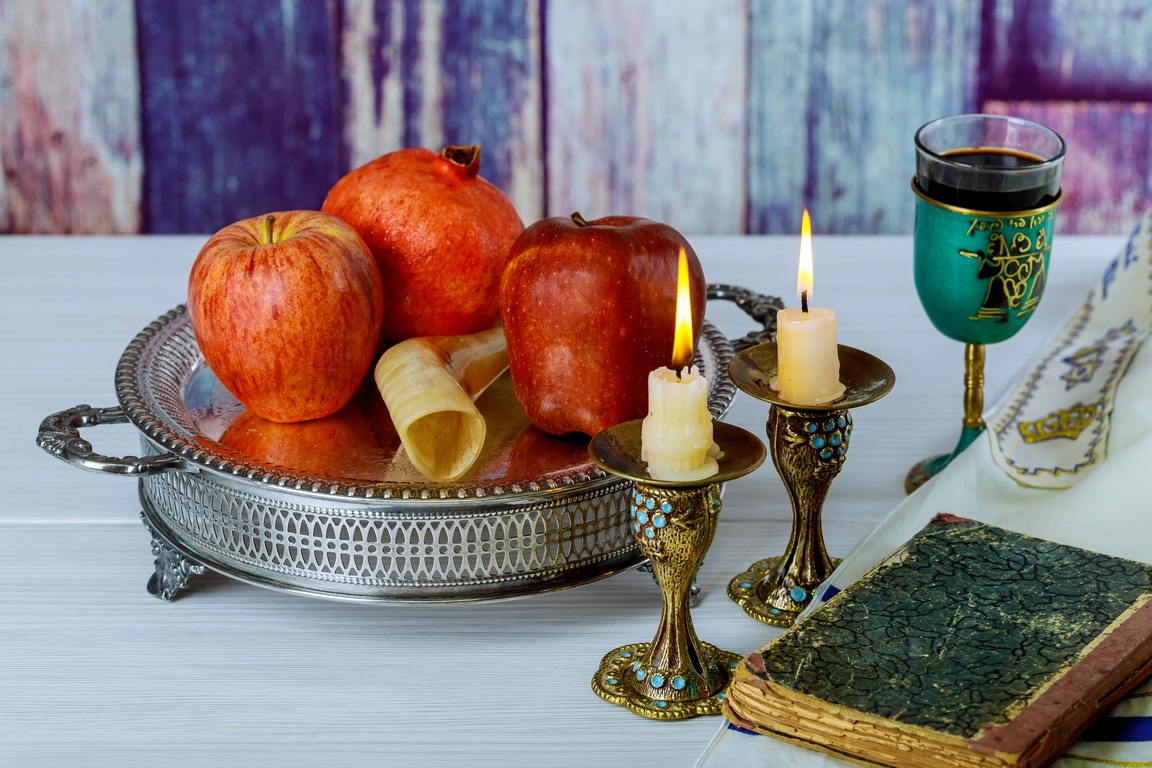
Yom Kippur is the holiest day of the year in Judaism. It’s a time when we reflect on our sins and ask for forgiveness from God.
The day is observed by fasting and prayer, and it’s a time when we come together as a community to celebrate our faith. It is all about reflection and repentance, and it’s a time when we can truly focus on our relationship with God.
Key Practices for Yom Kippur
First and foremost is prayer. We spend the entire day in prayer, asking for forgiveness and for God’s guidance in the coming year. We also fast from sunrise to sunset, which is a time of spiritual cleansing. Finally, we seek to improve our relationship with others by making amends where necessary.
All of these practices help us to focus on our own shortcomings and to strive for repentance and forgiveness. It is an important time for self-reflection, and these key practices are essential for a meaningful observance.
How to Greet Loved Ones on the day
It can be tough to know what to say to your loved ones on Yom Kippur. You may be feeling guilty about some of the things you’ve done over the past year, or you may just be eager to get through the day and start celebrating.
Whatever your feelings, we’ve got a few tips for how to greet your loved ones on the day of the festival. First, try to be genuine in your words. Don’t say something just because you think you’re supposed to—say what’s in your heart.
Second, keep it short and sweet. The last thing you want is to wear out your welcome or monopolize the conversation. Third, try to find a common topic of conversation that everyone can enjoy. This will help keep the mood light and pleasant.
Food for the festival
One of the most important customs of Yom Kippur is to fast from food and water for 25 hours. This is a time for physical deprivation and contemplation, but it doesn’t mean you can’t prepare some good food in advance.
Before Yom Kippur, it helps to stock up your fridge with dishes that don’t require too much effort to put together once the fast has ended. Soup is perfect – it’s easy to make and provides hydration, nourishment and warmth. A vegetable soup full of potatoes, carrots and onions will give you a perfect energy boost once you break the fast.
You can also make kugels – they’re savory puddings made with potatoes or noodles which can be served as a main course or side dish. Another great option is cholent, a traditional Ashkenazi stew made with beans, barley or buckwheat, vegetables and sometimes meat that’s placed in an oven overnight for slow cooking before the festival.
Whichever food you choose to have after the fast, make sure to have plenty of drinks on hand such as non-alcoholic sparkling wines and juices – however soft drinks are generally avoided on this holy day out of respect for its solemnity.
Customs and Traditions Around the World
Yom Kippur isn’t just observed in Israel, it’s celebrated by Jews around the world. In fact, Yom Kippur is a national holiday in some countries.
It is known as ‘le jour des grandes pardons’ in France and is marked by a 25-hour period of fasting and prayer. Many customs are associated with the festival in Germany, such as wearing white cloth to symbolise purity of soul and lighting candles to mark the start of the holy day.
Following the fall of communism in Russia in 1991, the festival was reintroduced as an official national holiday. Every year, hundreds of people congregate in Moscow’s main synagogue for a special early evening service to mark the beginning of the fast.
Many Jewish communities in America observe a “mock Yom Kippur” by attending synagogue services on Rosh Hashanah (the Jewish New Year).
On this day, they read aloud the Book of Jonah—the story of a man who repented his sins—to symbolize repentance without fasting or restrictions on food or drink.
Understanding the Significance of Yom Kippur in 2023
Yom Kippur in 2023 will be especially important, as it marks the end of a 5-year cycle and the start of a new one. It is a time of reflection and spiritual renewal, when we can reconnect with our sense of purpose and connection to one another.
The day is often referred to as “the Sabbath of Sabbaths,” and observed as a time of fasting and repentance for Jews around the world. There are many ways to observe this special day including prayer, giving to charity, seeking forgiveness from others and introspection. The practice of fasting on the day helps us to focus on our inner selves, allowing us time for contemplation, prayer and spiritual growth.
For some people this festival is an opportunity to reflect on past mistakes or consider how they can be better people in the year ahead. For others it is an opportunity to reflect on what they have accomplished over the last five years and set goals for the coming cycle. Whatever your intentions in 2023, Yom Kippur offers an opportunity for spiritual growth that can be beneficial all year long.
This festival is a significant day for Jews all over the world, and is often considered the most important holiday of the year. This year, it falls on September 18th and marks the end of the Ten Days of Repentance.
The day is celebrated as a day of fasting and atonement, and is a time for Jews to reflect on their sins and ask for forgiveness. It is also a time for family and friends to come together and celebrate. If you’re observing Yom Kippur this year, be sure to take some time to reflect on the holiday’s traditions and history.
FAQs
Q. What is the significance of Yom Kippur in the Jewish faith?
The significance of Yom Kippur in the Jewish faith is to seek forgiveness from God for one’s sins and to repent. It is a time for reflection and self-examination, as well as a time to ask for forgiveness from others.
Q. How is Yom Kippur traditionally celebrated?
Traditionally, Yom Kippur is celebrated by attending synagogue services, fasting, and participating in prayers and rituals. Fasting is a key aspect of Yom Kippur and is seen as a means of purifying the body and soul. On this day, Jews abstain from food, drink, and other physical comforts.
Q. What are some of the rituals associated with Yom Kippur?
Some of the rituals associated with Yom Kippur include the recitation of the Kol Nidre, a prayer that annuls any vows made for the upcoming year; the reading of the Torah; and the sounding of the shofar, a ritual instrument made from a ram’s horn, to symbolize a call to repentance.
Q. Is Yom Kippur a time of joy or sorrow for the Jewish people?
Yom Kippur is considered a time of reflection and introspection for the Jewish people, and is typically viewed as a solemn and contemplative occasion
Q. What is the fasting tradition associated with Yom Kippur?
The fasting tradition associated with Yom Kippur involves abstaining from food and drink for 25 hours, as a way of purifying the soul and seeking forgiveness from God. This fast is considered to be one of the most important religious observances in the Jewish faith, and is seen as a time to repent for past mistakes and to seek reconciliation with others.
Q. Is the day of atonement and Yom kippur the same?
Yes, Yom Kippur and the Day of Atonement are the same thing. The term “Day of Atonement” is often used to refer to Yom Kippur in English-speaking countries, while “Yom Kippur” is the Hebrew term.




